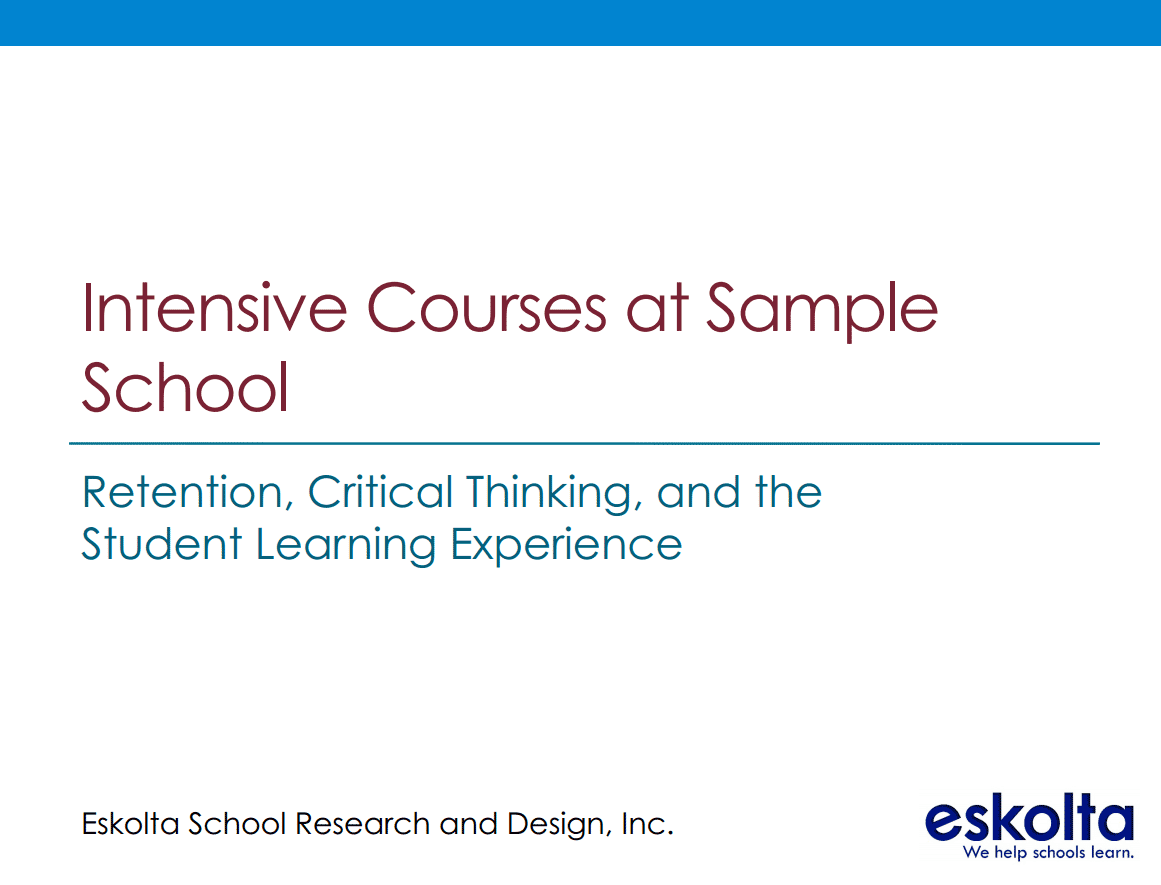A Study of Student Experiences in Intensive Courses at a NYC High School
“I learn better in intensives. I got more opportunities. We had more time to do things. We went straight through and got to complete things.”
“It’s hard to focus. You’re taught a bunch of different things in one period, then you have to bring all that information together and take a quiz in one day. For regular classes, you can focus on one lesson per class, then the next day you move on to the next lesson.”
Intensive Courses at Sample School: Retention, Critical Thinking, and the Student Learning Experience is an analysis undertaken by Eskolta for an NYC secondary school. Leaders at the school hypothesized that a schedule of two-week “intensives”—classes focused on one topic for three hours a day—instead of the traditional schedule of 45-minute classes in multiple subjects would allow students to learn more and develop stronger relationships with their teachers. Eskolta helped the school to test this hypothesis through a comparison of assessments before and after student involvement in intensives. Additionally, Eskolta conducted student and teacher interviews, facilitated conversations around the data, and provided reports throughout the process to help educators think about their work.
This study provided practical lessons for leadership at the secondary school. The results were decidedly mixed. The school weighed findings showing students reporting they had time to learn and were better able to stay on task against other findings showing neither strong nor weak results on skill assessments and attendance against still other findings suggesting that lower performers were more likely to struggle more, reporting that they grew bored in the longer classes and had trouble staying on task. As with any thoughtful experiment, the school learned from both its successes and failures, neither continuing with the exact program they had first set out to test nor rejecting it altogether. Instead, they used these findings to provide a series of recommendations for how they could take what appeared to work and leave behind what did not, in order to test out a new set of improvements in the coming school year.

